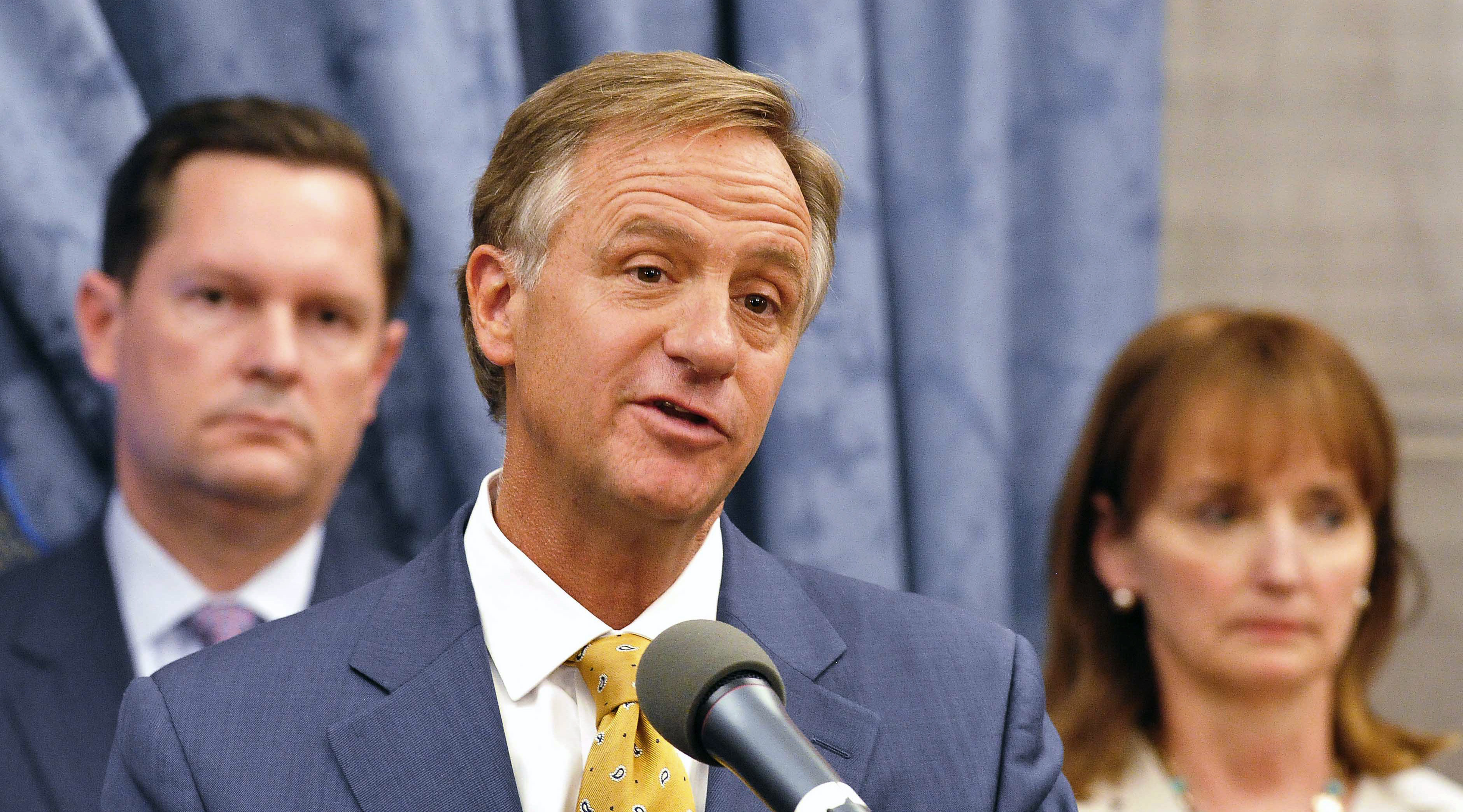NASHVILLE - A House panel's action last week to move alternative legislation to Gov. Bill Haslam's opioid proposal is spurring intense discussions between administration officials and health providers who believe the governor's proposed prescription limits go too far.
The House Health Subcommittee last Wednesday approved the alternative bill, sponsored by Rep. Cameron Sexton, R-Crossville, chairman of the full House Health Committee, despite concerns raised by administration officials during a hearing.
Sexton's bill seeks to ease some of the prescription limits Haslam's bill places on physicians, dentists and others who prescribe painkillers to patients.
Haslam and top administration health officials argue the limits are necessary to combat Tennessee's opioid crisis, but providers believe they are too draconian, allow little leeway for doctors to use their best judgment and interfere with their patient relationships.
The Republican governor's assistant for strategy and policy director, Jayme Simmons, and Chief Medical Officer Dr. David Reagan, both appeared before the panel.
"As all of you know, the governor is passionate about this topic," Simmons told the GOP-led subcommittee.
 Gov. Bill Haslam, center, announces the creation of a task force to propose ways to improve access to health care in Tennessee Tuesday, April 12, 2016, in Nashville. House Speaker Beth Harwell, R-Nashville, right, said she began conversations with health policy experts at Vanderbilt University's medical school after lawmakers rejected the Insure Tennessee proposal last year by Haslam. At left is Rep. Cameron Sexton, R-Crossville.
Gov. Bill Haslam, center, announces the creation of a task force to propose ways to improve access to health care in Tennessee Tuesday, April 12, 2016, in Nashville. House Speaker Beth Harwell, R-Nashville, right, said she began conversations with health policy experts at Vanderbilt University's medical school after lawmakers rejected the Insure Tennessee proposal last year by Haslam. At left is Rep. Cameron Sexton, R-Crossville.Reagan said the administration has "some concerns about some of the exemptions which are primarily for convenience. Convenience is important, but patient safety is also important. And we're in the middle of an epidemic of historic proportions."
That didn't sit well with Rep. Matthew Hill, R-Jonesborough, who told the officials, "I feel that it is wrong to use the force of government to practice medicine in the field of pain management or even addiction."
Complaining no one from the administration had even tried to discuss the legislation with him, Hill said, "With all due respect, that time is past."
The governor, who is in his last year of office, proposed the legislation which focuses on addiction prevention and rehabilitation for addicts. The governor wants to spend about $25 million of the proposal's total $30 million on treatment.
But the restrictions on painkiller prescriptions for new patients - dubbed the "opioid naive" - is causing heartburn among physicians and other prescribers.
Haslam wants to limit prescriptions for these new patients to just five days and with a second opioid prescription for 10 days in "exceptional cases." Doctors would have to justify and document the second prescription under the legislation and also first seek non opioid treatments.
Doctors say that interferes with their relationships and will prompt multiple visits by patients. The bill also says daily narcotic dosages must be less than the equivalent of 40 milligrams of morphine.
Taken together, it would amount to some of the nation's strictest prescription limits.
There are exceptions for patients suffering from cancer or who are in end-of-life hospice care. And existing patients suffering from chronic pain would not be impacted by the legislation should it become law.
Chairman Sexton said in an interview Monday that the committee works with a "lot of stakeholders" and the legislation amounts to an "alternative" to Haslam's plan.
"I think the administration's bill, we felt like, may be a little too burdensome on the patient and prescribers and tries to treat everyone the same even in the practice of medicine. What we felt like was we didn't have to intercede into the practice of medicine."
One thrust of Sexton's bill would allow doctors to continue prescribing initial doses of painkillers and provide discretion to pharmacists on how much to fill at one time.
"We thought we could go a little bit different route to achieve that same goal."
Sexton's bill is scheduled to come up Tuesday in the full Health Committee. Meanwhile, Republican senators appear to be more in line with Haslam's original legislation, and that bill is scheduled to come up Wednesday in the Senate Health and Welfare Committee.
Last week there was a meeting between administration officials and provider representatives, including the Tennessee Medical Association, which advocates for physicians. Another meeting was held Monday afternoon.
It was not immediately clear whether the chambers would delay their respective bills.
Contact staff writer Andy Sher at asher@timesfreepress.com or 615-255-0550. Follow him on Twitter @AndySher1.
